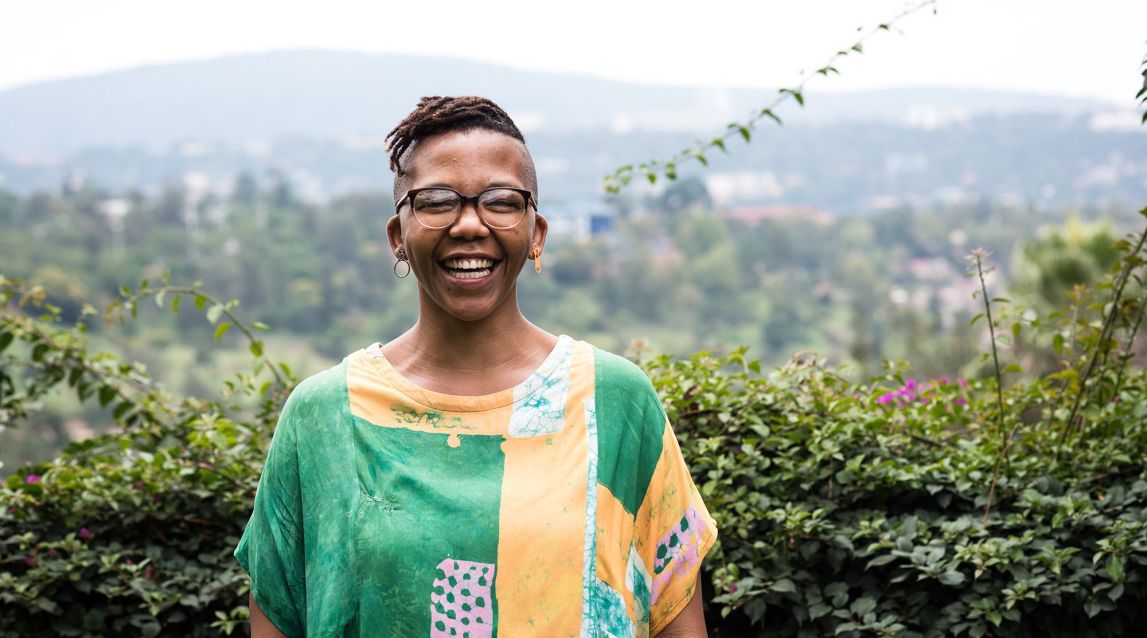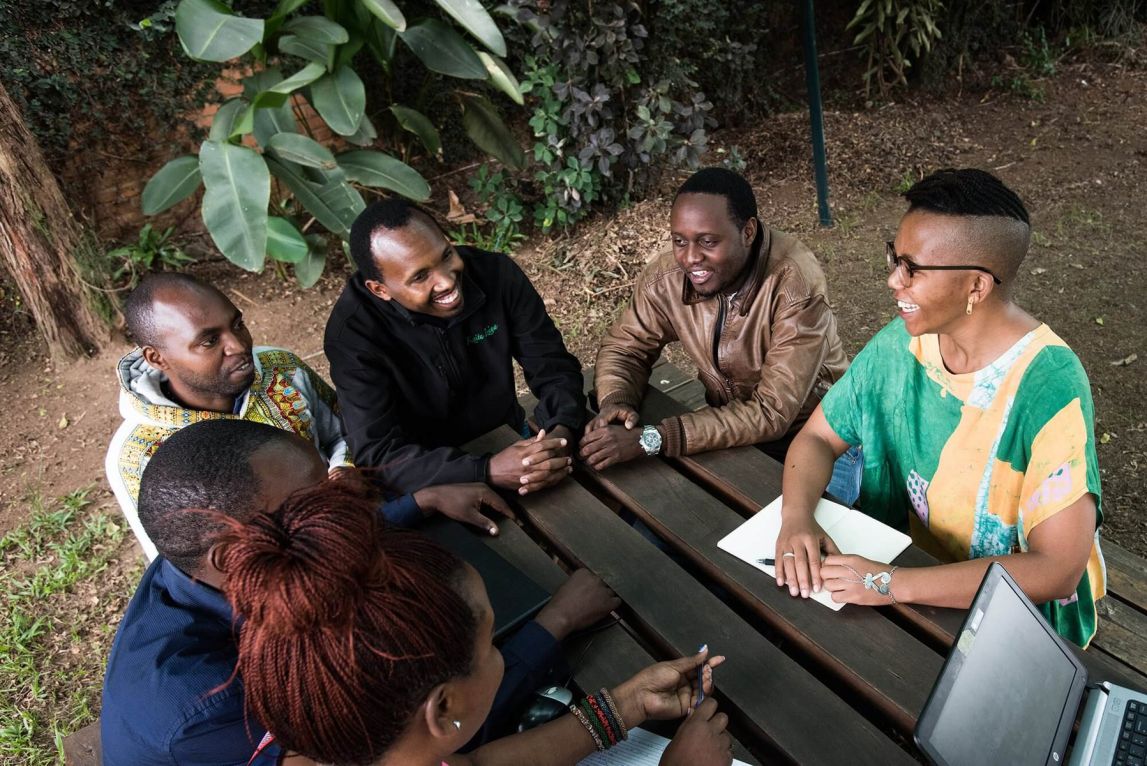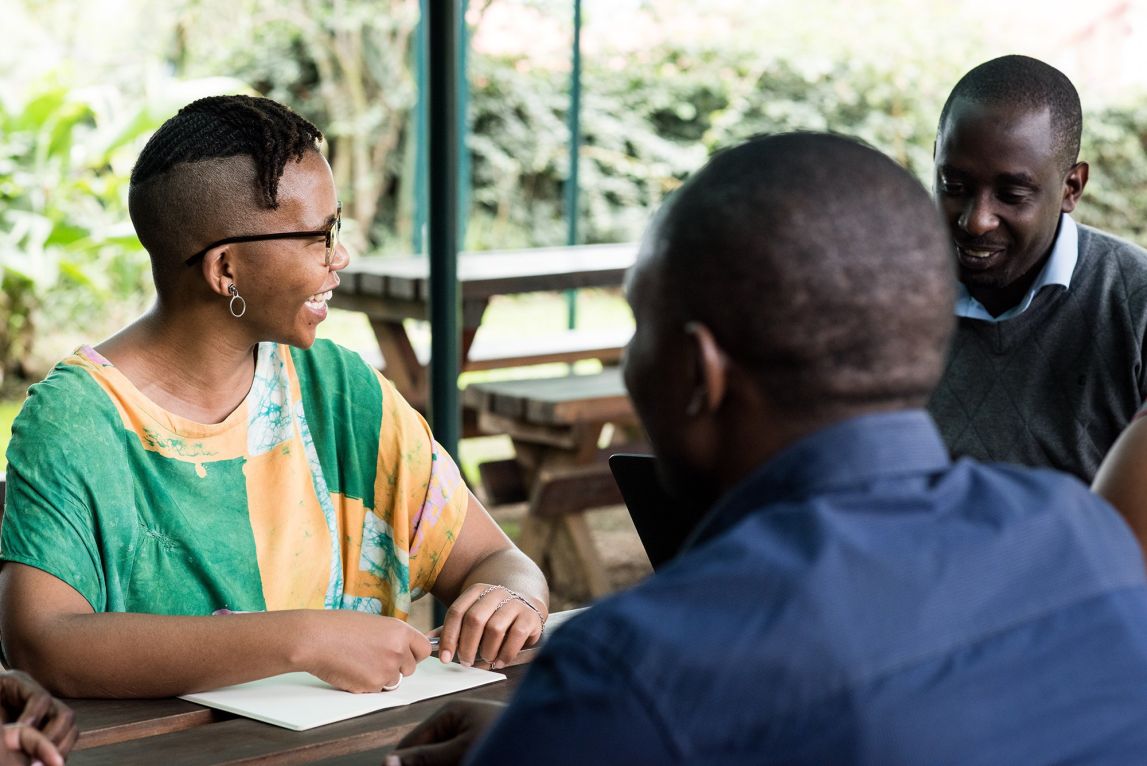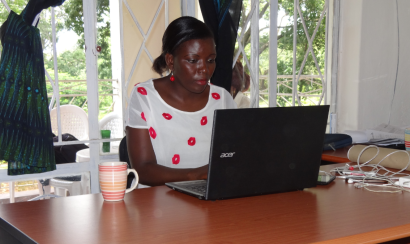Reinventing Your Career At The Senior Level
Ayanda Mngadi is One Acre Fund’s Chief Financial Officer, a role that sees her oversee our regulatory compliance, advise country programs on taxes and financial structures, and drive finance strategy across the organization.

At first, Ayanda Mngadi’s friends and coworkers thought she was crazy. After building a 15-year career in finance and receiving a coveted partnership with EY, one of the world’s top four accounting firms, Ayanda was ready to make a major change. In her advisory role with EY, she managed billion-dollar transactions between some of the world’s largest companies from high-rise offices in London and New York. Now, she wanted to trade that all in for a job supporting smallholder farmers, who often live on less than $2 a day.
“My friends and colleagues could not believe that I was willing to do this, but I had reached the point that I wanted a more purposeful life,” says Ayanda, who left EY in 2016 to become One Acre Fund’s Chief Financial Officer in Kigali, Rwanda. “I wanted to bring my day-to-day life closer to what I’m passionate about.”
Making a career transition at a senior level can be daunting, especially if you’re looking to move into a new industry. But as Ayanda found, a change can also be deeply rewarding at both a personal and professional level. After careful consideration, Ayanda took the leap because she knew she’d be more satisfied with her job and life if she could use her skills to make a difference. Here are four questions she considered when she made the change:
What am I most passionate about?
Before you make the move, it’s important to reflect on your priorities and think about what drives you. In Ayanda’s case, she knew she wanted to contribute to social change in Africa and help improve the lives of women. She chose a career in agriculture because most farm labor across Sub-Saharan Africa is carried out by women -- and in fact, women account for the majority of One Acre Fund’s clients.
Finding a career where your interests and professional skills align is crucial to maintaining long-term satisfaction after the move, especially if you’re making other sacrifices to get there, Ayanda says. It also will help you focus your job search and target employers that are the best fit for you.

Is the employer I’m considering making a real difference in its sector?
If you’re looking for a purposeful career, it’s also important to evaluate the impact of potential employers, to ensure that you can really make a difference. Ask questions in job interviews about how organizations measure impact, how they grow, and how they remain financially sustainable. One Acre Fund reports detailed impact information on its website, and we’re constantly evaluating ways we can improve our work so that we can help deliver even bigger income gains to farmers.
“It’s very important to get a sense of how the organization is run,” Ayanda says. “What kind of information are they putting out there about themselves? Do they have key performance indicators that they’ve tracked for a long time? What sort of financial information have they published?”
Scale is also an important factor to consider, Ayanda says. If an organization is growing and able to replicate its work across many different countries, it’s a sign that it’s filling a social need and creating a big impact.
Will this move provide the lifestyle that I want?
Any career move is going to result in big life changes, and it’s important to think ahead of time about what this may involve. This is especially true if you’re considering switching from the private sector into international development, where organizations tend to focus on creating an impact instead of delivering profits. Having a clear sense of your salary expectations and lifestyle priorities beforehand will help the transition go more smoothly.
“You have to be honest with yourself,” Ayanda says. “There’s certainly going to be a change, whether it’s monetary, or a change in location where you move from a big city to smaller city. You have to be very clear about what is important to you and your quality of life, and then take it from there.”

Is the work culture and environment a good fit for me?
Job interviews, especially at a senior level, should be two-way conversations where both parties decide if they’re a good fit together. You should interview your potential employer just as much as they’re interviewing you, Ayanda says. Ask as many questions as possible about your future role, as well as the organization’s broader culture – things like management structures, work environment, diversity, inclusion, and the path to promotion.
“You’re going to need to dig deep and ask challenging questions,” Ayanda says. “Ask to meet with more people if you can, and voice any concerns that you have in the beginning, so that you get a clear sense of how an organization operates.”
Keep trying!
Searching for a job at the top of the career ladder can be a long process, in part because some employers may view you as overqualified. It’s important to be persistent. If you’re hitting a wall, look for enterprises that are growing. Organizations that are “just slightly beyond the startup phase and have tangible scalability” are often hiring at many different job levels, and they’ll most likely be keen to add employees with valuable long-term experience, Ayanda says.
“When I was looking for jobs, I often got the answer ‘You’re too senior, you’re too qualified.’ But I was so resolute to make the move and find the right organization,” Ayanda says. “I needed to decide what the next stage in my life was going to be and find what would fulfill me.



